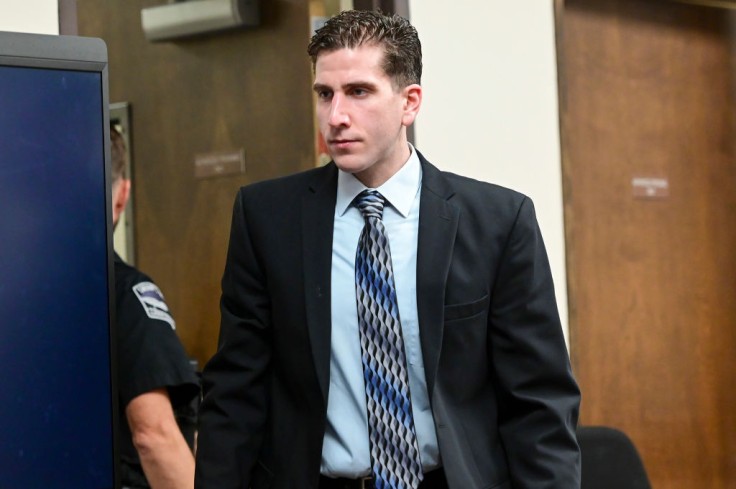
The trial for Bryan Kohberger, the accused perpetrator of the shocking University of Idaho murders, has commenced as prosecutors seek the death penalty against him.
Kohberger, 28, stands charged with four counts of murder in connection with the brutal killings of four University of Idaho students in late 2022.
The case, which sent shockwaves through the rural Idaho community and neighboring areas, has drawn widespread attention as the court proceedings get underway.
Prosecution's Intent to Seek the Death Penalty
As reported by the Associated Press, Latah County Prosecutor Bill Thompson filed a notice of intent to seek the death penalty against Bryan Kohberger in court on Monday.
Under Idaho law, prosecutors must notify the court within 60 days of a plea being entered regarding their intention to pursue capital punishment.
Thompson listed several aggravating circumstances in the notice, including the commission of multiple murders, exceptional depravity, and utter disregard for human life.
Defense attorneys have responded by filing motions, requesting the court provide additional evidence related to DNA profiles, cellphone records, social media data, and surveillance footage.
The defense seeks further clarification and access to information about the DNA found at the crime scene, which reportedly includes profiles of three unidentified males involved in the investigation.
Furthermore, they argue that the vast amount of evidence presented necessitates additional time to meet case filing deadlines.
The Gruesome University of Idaho Murders
According to CNN, Bryan Kohberger is confronted with four charges of first-degree murder and one charge of burglary in relation to the brutal killings of four students on November 13, at a residence near the primary campus of the University of Idaho in Moscow.
The bodies of Madison Mogen, Kaylee Goncalves, Xana Kernodle, and Ethan Chapin were discovered on November 13, 2022, in a rental home located near the University of Idaho campus in Moscow, Idaho.
During a hearing in May, an Idaho judge entered a plea of not guilty on Kohberger's behalf. The chilling slayings left the community in a state of disbelief and grief.
Subsequent investigations by law enforcement agencies revealed critical evidence linking Bryan Kohberger to the crime scene.
Authorities remained tight-lipped about the case until Kohberger's arrest at his parents' residence in eastern Pennsylvania on December 30, 2022.
Law enforcement officials were able to connect Kohberger to the murders through DNA evidence, cellphone data, and surveillance video.
Traces of DNA found on a knife sheath inside the victims' home were allegedly a match for Kohberger.
However, according to NBC News, investigators employed the tool to construct an extensive family lineage comprising numerous relatives, enabling them to ultimately pinpoint Kohberger as a potential suspect.
Additionally, his cellphone records indicated multiple instances of his presence near the victims' residence, and a white sedan resembling one owned by Kohberger was captured on surveillance footage near the scene around the time of the murders.
Read Also: Abortion Rights Strengthened in Arizona as Governor Signs Executive Order Limiting Prosecution
The High-Stakes Trial and Execution Methods
As the trial begins, all eyes are on the courtroom, awaiting the unfolding of the legal proceedings against Bryan Kohberger.
If convicted in this death penalty case, the defense will have the opportunity to present mitigating factors that could potentially spare Kohberger from capital punishment.
Mitigating factors might include evidence of mental health issues, expressions of remorse, youthfulness, or a history of childhood abuse.
Idaho law currently permits executions by lethal injection. However, recent difficulties in obtaining the necessary chemicals have led to postponed executions.
Notably, starting July 1, death by firing squad will become an approved backup method of execution under a law passed by the Idaho Legislature.
Nonetheless, the implementation of this method is anticipated to face legal challenges in federal court.
The trial will undoubtedly shed further light on the tragic events that unfolded, providing closure for the grieving families and seeking justice for the lives lost.
